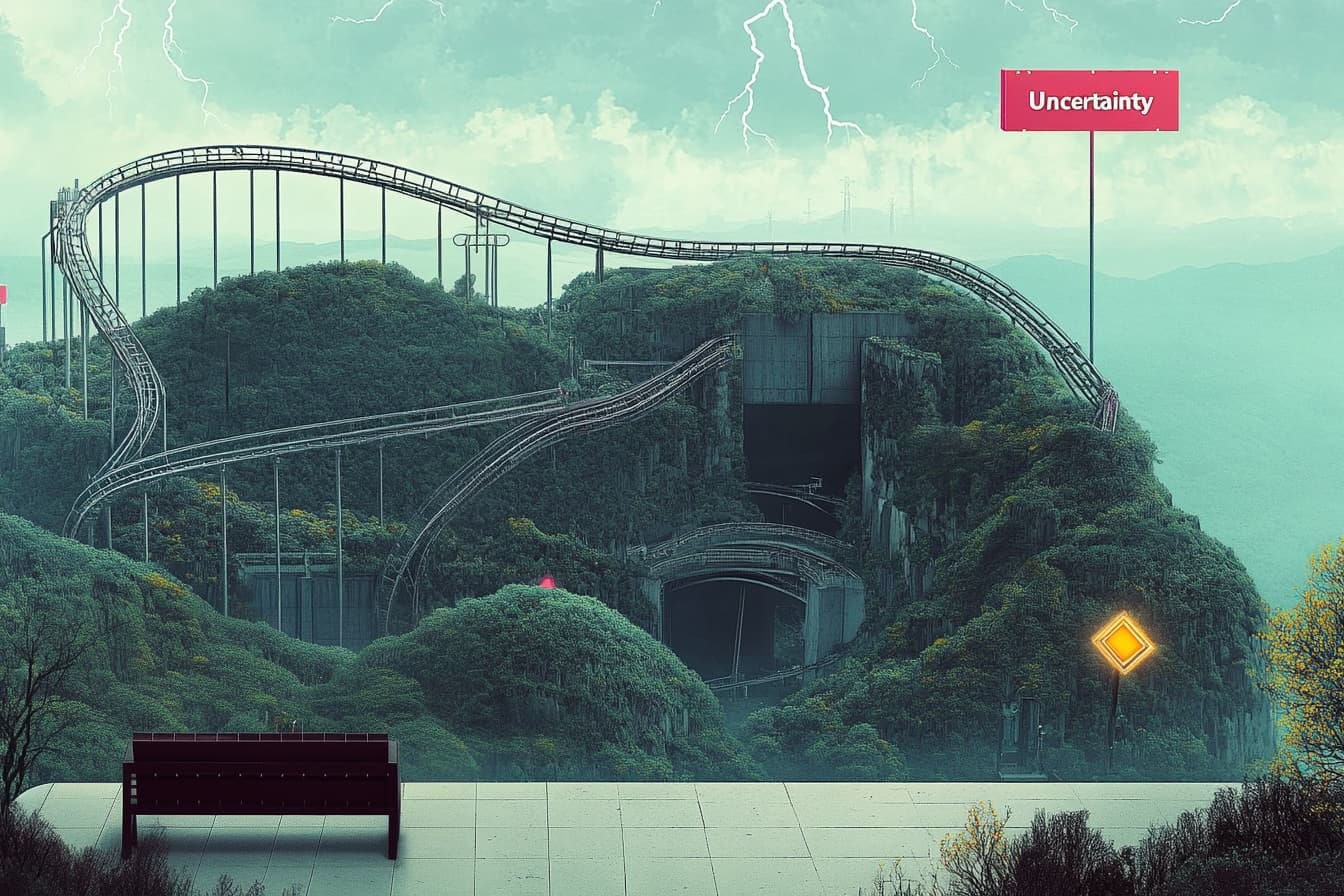A few days ago, the U.S. government announced steep tariffs on goods imported from other countries. This will almost certainly spark increased prices on consumer goods, at a time when prices on many items are already very high. The global stock market took a tumble, and analysts from the brokerage firm J.P. Morgan put the odds of a global recession at 60%
Another day, another reason to worry about our jobs. It's not just the cost of prices that will be impacted; the tariffs will have a cascading impact throughout the economy. For example, auto manufacturing company Stellantis announced the temporary layoff of 900 workers at seven different plants after the tariffs were announced.
Outside of manufacturing, it's not hard to see the throughline between the tariffs and careers in the tech sector where I work. My clients are mostly software companies, providing services instead of physical products. But some of their customers might be in industries impacted (like ecommerce). Their customers cut back on services and cancel a subscription to the software product. Clients have less revenue and cut back on their own expenses. Which might impact the work I do.
We've been living in a state of near-constant career discomfort for years. So while this stress isn't new, it feels like there's no reprieve. Things start to settle and something new crops up.
The job market roller coaster
In 2021, I left a 15-year career working at a tech company, most of which had been a relatively stable time. The company struggled during the 2008 financial crisis, but I kept my job and weathered the storm. There were other periods of downturn at the company over the years, but they were internal issues rather than the result of external forces.
Covid hit and sent shockwaves through various sectors. My employer did fine after securing a PPP loan, which was a government program to inject cash into small businesses. Even though I was insulated, this was the first roller coaster spin.
When I quit in 2021, venture-capital-backed tech companies were booming. The money was cheap to obtain and free-flowing — too free-flowing, as it turned out. Tech layoffs hit hard, starting in 2022. I watched company after company announce drastic cuts in their workforces. It had the ripple effect I mentioned earlier — eventually, internal budget cuts at tech companies impacted the marketing agency I worked for at the time. It led, in part, to me losing my job. The tech struggles were roller coaster spin #2.
Then ChatGPT hit the market in November 2022. Within months, the AI hype was everywhere. As the promises of AI's potential grew more and more prevalent, workers across many sectors began to wonder: Will AI take my job? While I believe that there will always be a market for high-quality work, there are emerging examples of AI replacing humans in some capacity (like chatbots for customer service). AI became roller coaster spin #3.
Meanwhile, inflation was on the rise, reaching a high point in 2022. Although it went down in 2023, prices across many products remained inexplicably high. There's evidence to suggest that corporate greed kept prices high, with executives bragging on earnings calls about widening profit margins. Decreased inflation should have led to lowered costs, but it didn't. And now, on top of that, we're facing a potential recession. Spin #4.
I can't think of anyone who wasn't impacted in one way or another by the roller coaster of the past few years. In some cases, people have been affected in multiple ways. Career discomfort has been unavoidable.
Control what you can
Stress and instability permeate every aspect of our lives, not just work. It has become, unfortunately, a collective experience.
You can't control these external forces. You have to focus on what you can control.
It's unrealistic to think that most people can build a substantial savings account in a short period of time. But you can think about your household expenses and what you could do differently if prices go up. Lower consumer spending has a ripple effect across the economy (not in a good way), but you can't be worried about that. You can only worry about yourself.
No matter if you work for a company or are self-employed, ramp up your networking efforts in case you need to look for a new job/client.
You can focus on relationships with your loved ones, because those people can lift you up when the world seems at its worst.
Outside of that, it's a "what if?" game at this point. I’d planned to create resources for freelancers over the next few months (paid products). And now I wonder: if freelancers have less disposable income, they won't be willing to spend on something that isn't 100% necessary. Am I going to put all of this work into something that will fall flat?
But I also have to tell myself that my life can't stand still. I have to make the best decisions I can with the information I have right now.
Most issues of this publication are free because I love sharing ideas and connecting with others about the future of work. If you want to support me as a writer, you can buy me a coffee.
If you love this newsletter and look forward to reading it every week, please consider forwarding it to a friend or becoming a subscriber.
Have a work story you’d like to share? Please reach out using this form. I can retell your story while protecting your identity, share a guest post, or conduct an interview.





Career discomfort is a gracious euphemism, existential anxiety is probably closer to the reality on the ground for many people. With a trauma survivor perspective in mind, this can be deeply disturbing and destabilising for vulnerable populations and I suspect a fresh wave of mental health issues will follow in the next few years.